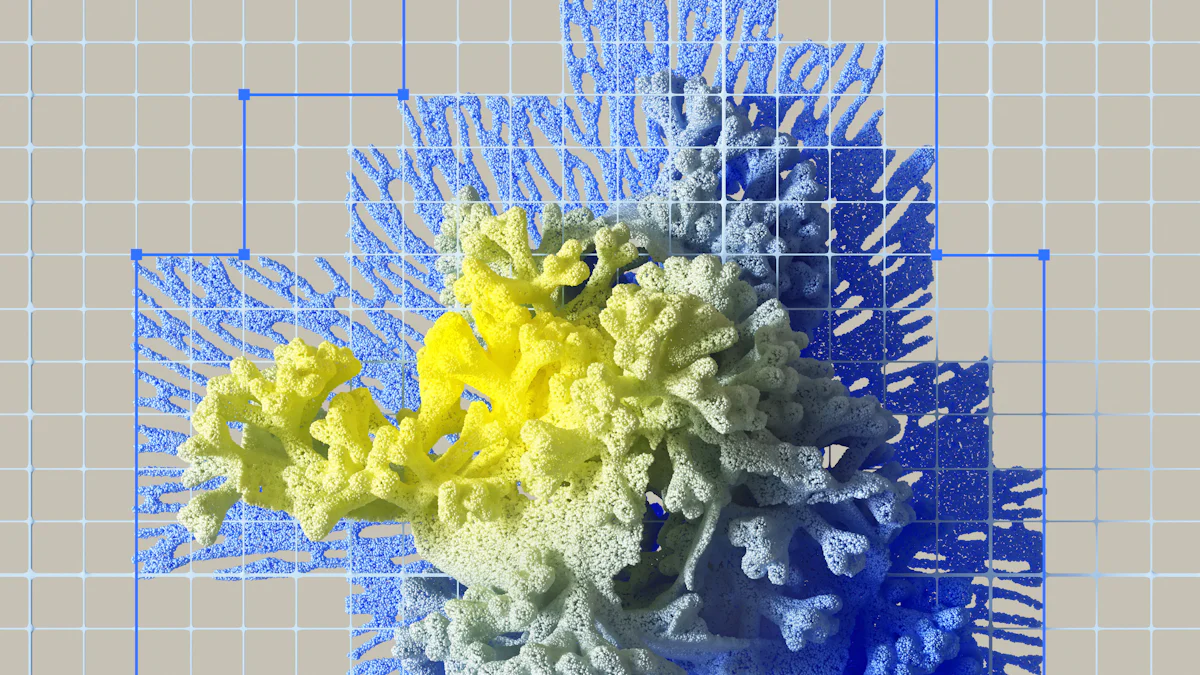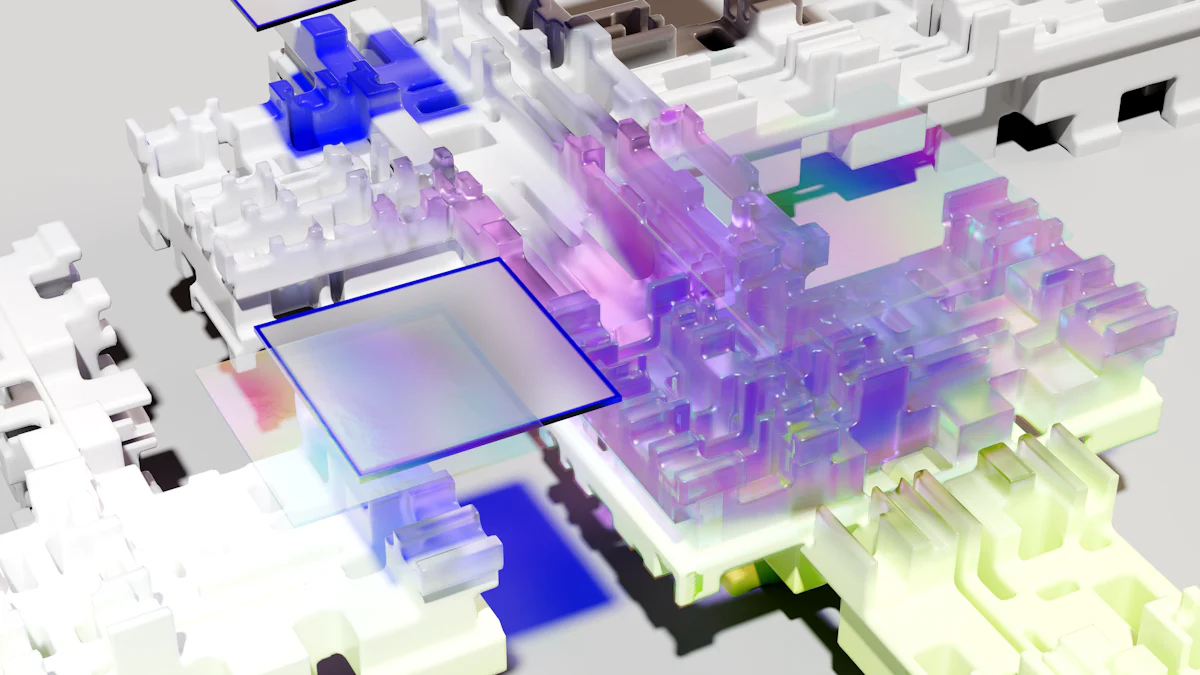The Ethical Implications of AI-Generated Content

AI-generated content has become a significant part of our digital landscape. It can produce large amounts of content quickly and adapt to various writing styles. This efficiency offers numerous advantages, yet it also raises important questions about the ethical implications of its use. For instance, while 89% of employees believe AI can assist in up to half of their daily work activities, concerns about job displacement persist. Additionally, consumer engagement decreases by 52% if they suspect content is AI-generated. These factors highlight the need for a thoughtful examination of AI's role in content creation.
Understanding AI-Generated Content
Definition and Examples
What is AI-generated content?
AI-generated content refers to material created by artificial intelligence systems. These systems use algorithms to produce text, images, or videos that resemble human-made content. AI tools analyze vast datasets to learn language patterns and styles, enabling them to generate coherent and contextually relevant content. This technology has revolutionized content creation by offering speed and efficiency that surpass human capabilities.
Examples in various industries
AI-generated content finds applications across multiple industries:
Media and Journalism: AI tools assist in drafting news articles and reports, providing quick updates on breaking news.
Marketing and Advertising: Businesses use AI to create personalized marketing messages and advertisements tailored to individual consumer preferences.
Entertainment: AI generates scripts, music, and even visual effects for movies and video games, enhancing creative processes.
Education: AI helps in developing educational materials and assessments, offering personalized learning experiences for students.
How AI Generates Content
Algorithms and machine learning
AI content generation relies heavily on algorithms and machine learning. These algorithms process large volumes of data to identify patterns and structures in human language. Machine learning models, such as neural networks, enable AI systems to improve their content generation capabilities over time. By continuously learning from new data, AI tools can produce increasingly sophisticated and human-like content.
Role of data in content generation
Data plays a crucial role in AI-generated content. AI systems require extensive datasets to train their algorithms effectively. These datasets include diverse examples of human language and style, allowing AI to mimic various writing tones and formats. However, the reliance on data also presents challenges. For instance, biased datasets can lead to biased AI outputs, raising ethical concerns about fairness and impartiality in content generation. Ensuring high-quality and representative data is essential for producing accurate and reliable AI-generated content.
Ethical Implications of AI-Generated Content

Authorship and Ownership
Who owns AI-generated content?
The question of ownership in AI-generated content presents a complex challenge. Traditionally, copyright laws grant ownership to the creator of a work. However, when AI generates content, identifying the "creator" becomes difficult. In some jurisdictions, the law remains unclear about whether the AI developer, the user, or the AI itself holds ownership rights. This ambiguity can lead to disputes and challenges in copyright law. The Copyright and Artificial Intelligence Report highlights the need for legal frameworks to clarify ownership and copyright status of AI-generated content. Without clear guidelines, stakeholders may face legal uncertainties and conflicts over intellectual property rights.
Credit and recognition issues
Credit and recognition for AI-generated content also raise ethical implications. When AI produces content, determining who deserves acknowledgment becomes a point of contention. Should the AI system receive credit, or should the human operators behind the AI be recognized? This question becomes even more pressing in creative industries where recognition plays a significant role in career advancement. The absence of clear standards for credit allocation can lead to ethical dilemmas and disputes over recognition. Establishing guidelines for credit and recognition in AI-generated content is essential to ensure fairness and transparency.
Bias and Fairness
Potential biases in AI systems
AI systems can inadvertently perpetuate biases present in their training data. These biases can manifest in AI-generated content, leading to unfair or discriminatory outcomes. For instance, if an AI system learns from biased datasets, it may produce content that reflects those biases. This raises ethical implications regarding fairness and impartiality. Ensuring that AI systems generate unbiased content requires careful consideration of the data used for training. Developers must actively work to identify and mitigate biases in AI systems to promote fairness and equality in content generation.
Ensuring fairness in content generation
Ensuring fairness in AI-generated content involves implementing strategies to address potential biases. Developers can use diverse and representative datasets to train AI systems, reducing the risk of biased outputs. Additionally, regular audits and evaluations of AI systems can help identify and rectify biases. By prioritizing fairness in content generation, developers can create AI systems that produce equitable and unbiased content. This commitment to fairness aligns with ethical principles and promotes trust in AI-generated content.
Accountability and Responsibility
Who is responsible for AI-generated content?
Determining responsibility for AI-generated content poses significant ethical implications. When AI systems produce content, identifying who holds accountability for the output becomes challenging. Is it the AI developer, the user, or the organization deploying the AI? This question becomes crucial when AI-generated content leads to harmful or misleading outcomes. Establishing clear lines of responsibility is essential to ensure accountability in AI-generated content. Organizations must implement policies that define roles and responsibilities for AI-generated content to address these ethical concerns.
Legal implications and challenges
The legal implications of AI-generated content present complex challenges. Current laws may not adequately address the unique aspects of AI-generated works, leading to legal uncertainties. The Ethics and Originality in AI-Generated Content report emphasizes the need for clear laws and regulations regarding AI involvement in content creation. Without comprehensive legal frameworks, stakeholders may face difficulties in navigating intellectual property rights and liability issues. Developing nuanced solutions that protect all parties' interests is crucial to address the legal complexities of AI-generated content.
Impact on Society

Influence on Media and Journalism
Changes in content creation and distribution
AI-generated content has transformed media and journalism. It enables rapid content creation, allowing news outlets to deliver updates swiftly. AI tools can draft articles, summarize reports, and even generate headlines. This efficiency streamlines the content production process, reducing the time and effort required by human journalists. However, this shift also alters traditional content distribution methods. AI-generated content can be tailored to specific audiences, enhancing personalization but potentially narrowing the diversity of perspectives presented.
Trust and credibility concerns
The rise of AI-generated content raises significant trust and credibility concerns. Consumers initially show interest in AI-generated material due to its novelty and efficiency. However, engagement drops when they suspect content is AI-generated. This skepticism stems from doubts about the accuracy and authenticity of AI-produced information. As consumers become more adept at identifying AI-generated content, maintaining trust becomes crucial. Media organizations must ensure transparency about AI involvement in content creation to uphold credibility and foster audience trust.
Effects on Employment
Job displacement in creative industries
AI's role in content creation poses challenges for employment in creative industries. Automation of tasks traditionally performed by humans can lead to job displacement. Writers, editors, and other creative professionals may find their roles diminished as AI systems take over routine content generation tasks. This shift necessitates a reevaluation of job roles and responsibilities within these industries. Workers must adapt to changing demands and develop new skills to remain relevant in an AI-driven landscape.
New opportunities and roles
Despite concerns about job displacement, AI-generated content also creates new opportunities and roles. The integration of AI in content creation opens avenues for innovation and creativity. Professionals can leverage AI tools to enhance their work, focusing on higher-level tasks that require human intuition and creativity. New roles emerge in AI system development, maintenance, and oversight, offering career paths in technology and data management. Embracing these opportunities allows individuals and organizations to thrive in an evolving digital environment.
Future Directions and Solutions
As AI-generated content becomes more prevalent, addressing its ethical implications is crucial. The future of AI in content creation hinges on developing robust ethical guidelines and leveraging technological advancements to ensure responsible use.
Ethical Guidelines and Regulations
Developing ethical frameworks
Creating ethical frameworks for AI-generated content is essential. These frameworks should emphasize fairness, transparency, and accountability. Content creators must ensure that AI systems use diverse and representative training data to prevent biased outcomes. By implementing transparency measures, such as clearly indicating when content is AI-generated, stakeholders can foster trust and credibility. Establishing mechanisms for accountability will address issues that may arise with AI-generated content. Ethical guidelines should promote responsible AI use, ensuring that AI technology benefits society while minimizing potential harm.
Role of governments and organizations
Governments and organizations play a pivotal role in shaping the ethical landscape of AI-generated content. They must collaborate to establish clear regulations and standards that guide AI development and implementation. The US government's AI Bill of Rights serves as a model, focusing on principles that ensure AI is developed and used responsibly. Organizations can lead by example, adopting ethical codes that promote transparency and accountability in the AI industry. By working together, governments and organizations can create a sustainable future for AI content creation, addressing the ethical implications it presents.
Technological Advancements
Improving AI transparency
Technological advancements offer opportunities to enhance AI transparency. Developers can design AI systems that provide insights into their decision-making processes, allowing users to understand how content is generated. This transparency can help mitigate concerns about the ethical implications of AI-generated content. By making AI systems more transparent, developers can build trust with users and ensure that AI-generated content aligns with ethical standards. Transparency measures can also facilitate the identification and correction of biases, promoting fairness in content generation.
Enhancing AI accountability
Enhancing AI accountability is vital for addressing the ethical implications of AI-generated content. Developers must implement strategies that hold AI systems accountable for their outputs. This includes establishing clear lines of responsibility for AI-generated content, ensuring that stakeholders can address any issues that arise. By prioritizing accountability, developers can create AI systems that produce reliable and ethical content. Technological advancements can support these efforts by providing tools for monitoring and evaluating AI systems, ensuring they adhere to ethical guidelines.
In conclusion, the future of AI-generated content depends on the development of ethical guidelines and technological advancements. By prioritizing fairness, transparency, and accountability, stakeholders can address the ethical implications of AI-generated content and create a responsible and sustainable future for AI in content creation.
AI-generated content presents several ethical implications that demand attention. Key concerns include authorship, ownership, bias, and accountability. These issues highlight the need for clear ethical guidelines and responsible AI use. To navigate this new creative landscape, stakeholders must prioritize transparency and accountability. Businesses and organizations can lead by developing robust ethical principles and integrating them into their practices. By balancing AI's potential with ethical considerations, society can achieve a more ethical and sustainable future for AI content creation.
See Also
Ethical Considerations in AI-Generated Academic Papers
Maximizing Content Marketing with Generative AI
The Educational Content Creation Revolution with Generative AI
